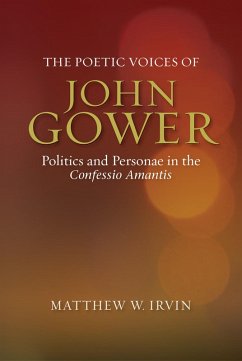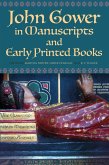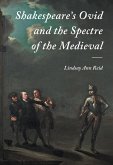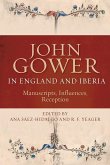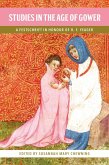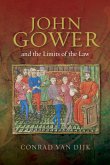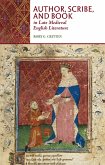An examination of Gower's skilful deployment of personae in his works, showing the parallels between the way he treats love, and the way he treats politics.
Gower's use of the persona, the figure of the writer implicated in the text, is the main theme of this book. While it traces the development of Gower's voice through his major works, it concentrates on the dialogue of Amans and Genius in the Confessio Amantis. It argues that Gower negotiates problems of politics and problems of love by means of an analogy between political ethics and the rules of fin amour; Amans and Genius are both drawn from and occupied with amatory and ethical traditions, and their discourse produces a series of attempts to find a coherent and rational union of lover and ruler.
The volume also argues that Gower's goal is poetic as well as political: through the personae, Gower's readers experience the pains and pleasures of erotic and social love. Gower's personae voice potential responses to exemplary experience, prompting readers to feel and to judge, and moving them to become better lovers and better rulers. Gower's analogy between fin amour and politics brings the affects of the lover to the action of government, and suggests for both love and rule the moderation that brings peace and joy.
Matthew W. Irvin is Assistant Professor in the Department of English and Chair of the Medieval Studies Program at Sewanee.
Gower's use of the persona, the figure of the writer implicated in the text, is the main theme of this book. While it traces the development of Gower's voice through his major works, it concentrates on the dialogue of Amans and Genius in the Confessio Amantis. It argues that Gower negotiates problems of politics and problems of love by means of an analogy between political ethics and the rules of fin amour; Amans and Genius are both drawn from and occupied with amatory and ethical traditions, and their discourse produces a series of attempts to find a coherent and rational union of lover and ruler.
The volume also argues that Gower's goal is poetic as well as political: through the personae, Gower's readers experience the pains and pleasures of erotic and social love. Gower's personae voice potential responses to exemplary experience, prompting readers to feel and to judge, and moving them to become better lovers and better rulers. Gower's analogy between fin amour and politics brings the affects of the lover to the action of government, and suggests for both love and rule the moderation that brings peace and joy.
Matthew W. Irvin is Assistant Professor in the Department of English and Chair of the Medieval Studies Program at Sewanee.
Dieser Download kann aus rechtlichen Gründen nur mit Rechnungsadresse in A, D ausgeliefert werden.

